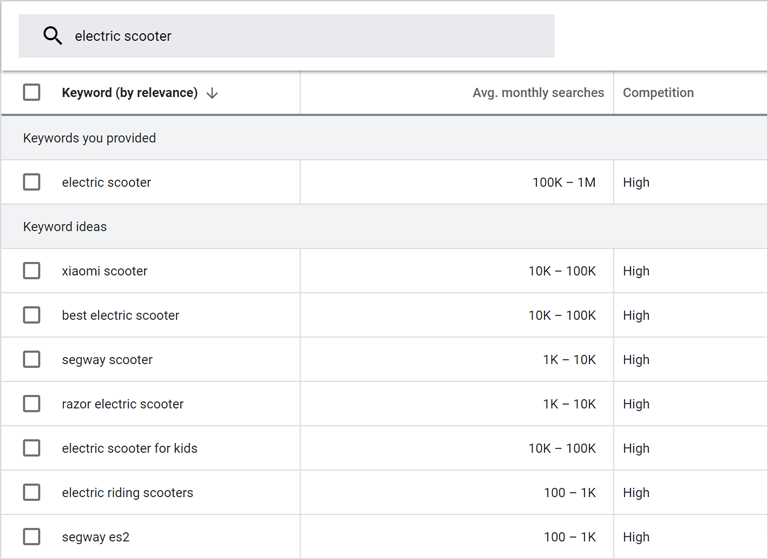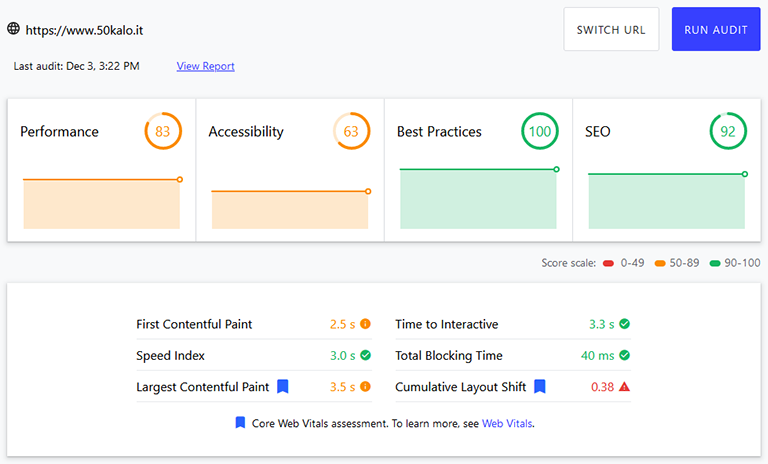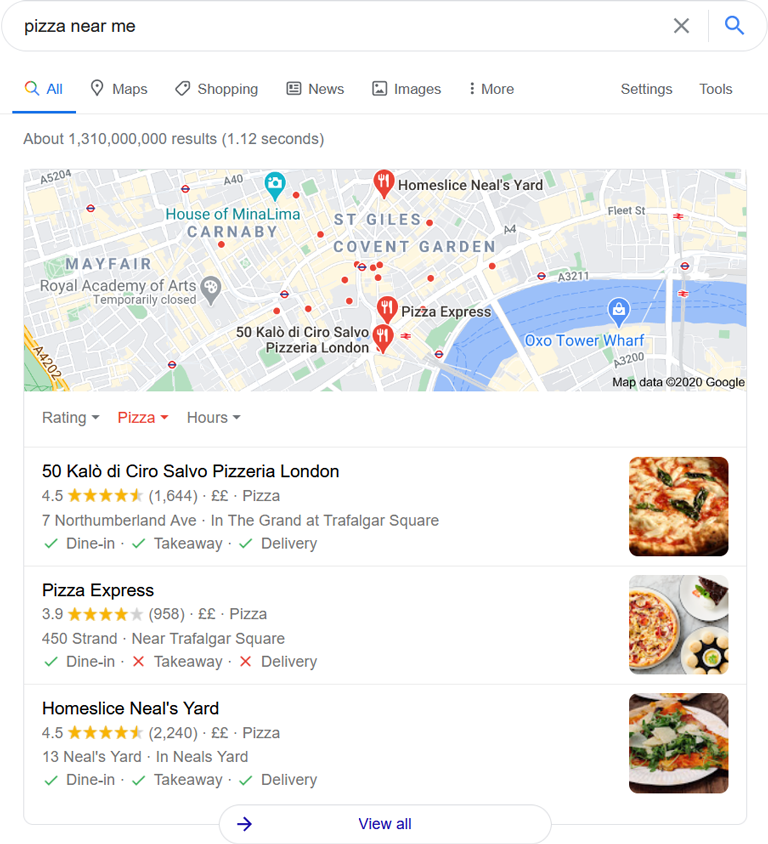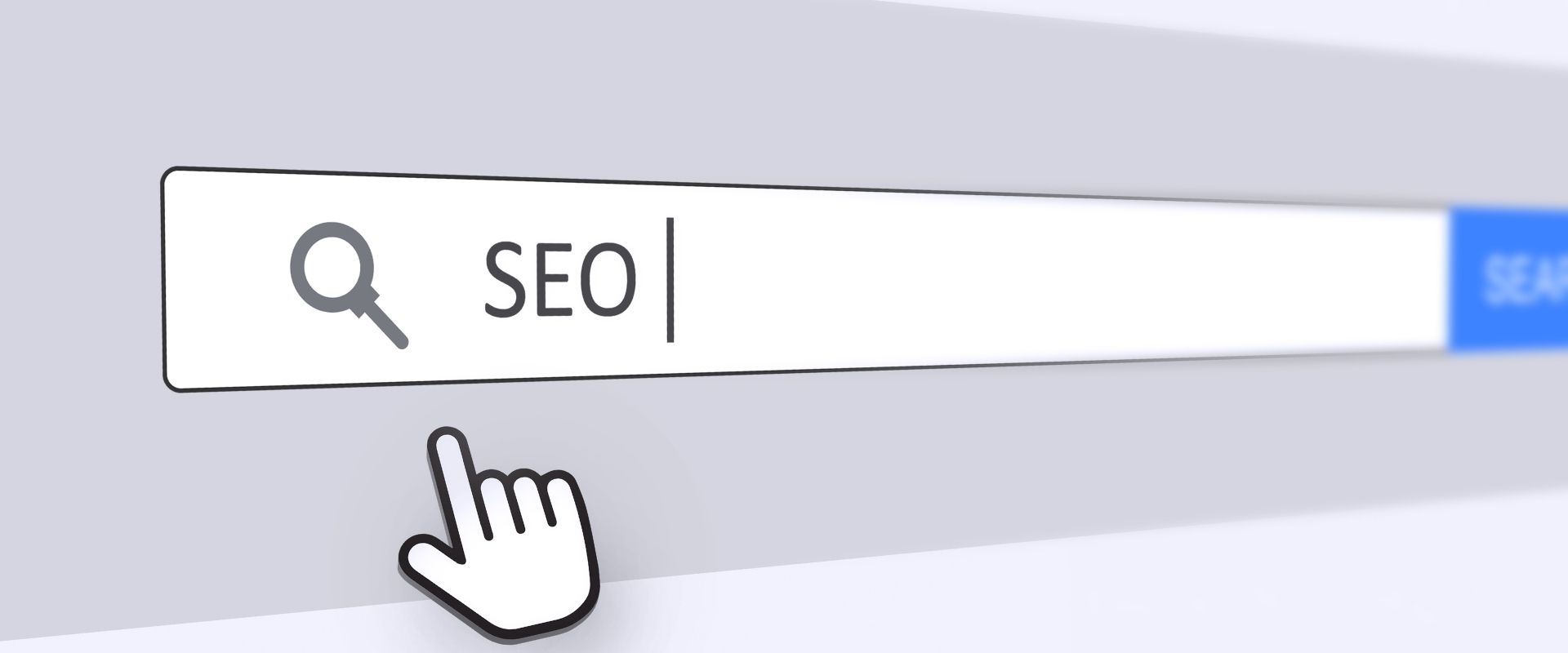When it comes to SEO, there are a lot of acronyms and terms thrown about by digital marketers like it’s second nature, but to the ordinary person, it might just feel like you’ve been transported to some other dimension where English doesn’t sound like English anymore.
If you’re diving into the world of SEO for the first time, then terms like this:
“International SEO, targeted keyword research, boost your SERP rankings and organic traffic and CTR, generating qualified leads and driving sales, site architecture….”
…are going to sound like a whole lot of intimidating technical jargon. So we’ve put together a quick guide on the most important terms in the world of SEO, to break down those barriers and make sure that no one ever has to smile and nod and bluff their way through a meeting about search engine optimization.
We’ve broken it into easily digestible chunks, so skip ahead if you want to read about particular topics or read each section for a comprehensive understanding of why SEO is important and how to achieve consistent results in an ever-changing environment.
- The Basics
- SEO Friendly Content
- Keyword Research and Targeting
- Content Writing
- Link Building
- SEO Friendly Website
- Technical SEO
- Site Architecture
- Ecommerce SEO
- WordPress SEO
- Strategies
- International SEO
- Local SEO
- Reputation and Brand Management
- Tracking and measuring
We will discuss why SEO is so important, SEO techniques that optimise your content, to make it trustworthy and authoritative, techniques that make your website SEO friendly starting from the inside, working with the structure of your website and how your visitors interact with it, as well as the strategic SEO techniques that drive your business to new heights.
So let’s begin!
What is SEO? The Basics
SEO, or search engine optimization, refers to publishing information and marketing it in a way that shows search engines it is relevant to the queries in question.
Why is it so important?
When someone searches for something on the internet, search engines rank their results based on what they think the best answer for that query is. The way they determine what is best is based on an algorithm, which takes many factors into account – but we’ll get into those later.
The reason why SEO is so important – in the fickle world we live in of instant gratification and eternal impatience – is that when people Google something, they pretty much always click on the top results first. I don’t know anyone who goes straight to the link halfway down page 14, but hey, maybe that’s just me!
This means that if you want to gain online visibility with your target market then your page needs to rank high on Google’s (or any search engine’s) list of recommendations. This is done by making sure your website and its content tick the search engine algorithm’s boxes. You need to optimise your content for the search engine. SEO. Easy. (Wellllll, maybe not so much).
Before we get into the hows of SEO it’s important to understand how search engines work.
Let’s talk about those algorithms…
Basically, search engines discover relevant information based on their various algorithms. These include:
- Spiders – algorithms designed to crawl or spider through the web looking for pages relevant to the search that was performed;
- Index – like a database representing a collection of information that is searched through to find an answer to a request made by a user;
- Relevancy – algorithms designed to determine how useful the search results are, based on which search engines rank the pages;
- Search results – these are the pages where the results of the query are displayed, also referred to as SERPs (search engine results pages).
You can picture a search engine like a librarian that helps you find the right book or document based on your requirements. You tell the librarian what you need, and she will look through the appropriate categories of books and make recommendations based on her knowledge of the materials as well as other people’s opinions of the quality of said books.
SEO how to – let’s get into it!
If search engines are the librarians, SEO is what makes our book zoom off the shelf and knock said librarian on the head when someone asks about our particular topic, hoping the librarian hands it straight to the person. Or more specifically, SEO will make our content stand out for search engines as a great answer to provide to internet surfers asking about our topic.
For example, if you run an electrical business in London, you might go to an SEO agency and ask them to help you get your site to the top of Google’s SERP whenever someone searches for ‘electrician London.’ The agency would use a variety of strategies and methods to make your site as relevant as possible for that term, which would help convince the search bots (i.e. Google) that your site should be at the top of that list.
To achieve higher SERP rankings we use all the SEO tools in the box, including:
- Keyword research and implementation
- SEO copywriting
- Building links and citations to your site
- Managing your online reputation (reviews)
Some of these focus on optimizing your content, some on optimizing your website and some operate at a strategic level, but all of them lead to creating a reliable online reputation that search engines will want to promote.
SEO Friendly Content
High-quality content written by experts is what internet searchers are looking for and so, high-quality content is what search engines promote. So how do we show search engines that your content is relevant and authoritative? How do we make it SEO friendly?
In this section, we will discuss the techniques that focus on developing SEO friendly content and introducing a comprehensive content marketing strategy for your organisation.
- Keyword Research and Targeting
- Content Writing
- Link Building
Keyword Research and Targeting
A keyword refers to the term or phrase a person enters in the search box when looking for specific information. Keywords are essential to search engine optimization because they can be used to tell search engines that your content should be considered relevant for your target market’s queries, effectively saying:
“Hey Google, when someone searches for these terms, my content can provide relevant information!”
Keyword research then is the process of discovering the right keywords to target in your SEO marketing campaign. Keyword research can be done using a variety of methods:
- Using Google keyword tools, such as Google Ads Keyword Planner
- Analyzing data from Google Trends
- Researching the sites of your competition
- Paying attention to feedback from your customers and prospects
- Adding a search box to your site to discover what people want to know
- Surveying customers to discover how they learned about your business and why they chose you
For example, if you run an electric scooter online shop, you want to make sure that your site shows up in the results when people search for an ‘electric scooter’ but even more importantly for related and long-tail keywords. Long-tail keywords are specific variations of your core keyword.
Here we have an example of how you can analyse the search volume for ‘electric scooter’ in the past 12 months with Google Keyword Planner Tool.

Once you have done the research and identified the keywords that your customers are searching for, you then use these throughout your content. This results in Keyword Targeted content, it makes it clear to search engines what your content is about and who it should be shown to.
Read more about How to Implement Keywords for Search Engine Optimization.
Content Writing
Using keywords throughout your content is one technique that can increase your visibility with your target market, however, you also need to formulate your content in a way that maximises its SEO potential. You want to make sure it captures your audience’s attention and drives them to take action.
So how do you write content for SEO?
- Your content should be written for your audience first. This can take a shift in thinking, from writing what you want to say to writing more about what your audience wants to hear.
- Integrate keywords and keyword rich phrases (also known as long-tail keywords) into your text.
- Structure your text, making use of eye catching, on-topic headlines and imagery.
- It is important to have enticing and engaging copy that reflects your brand.
- Your content should be purpose-driven. It’s important to understand the reason that your audience is reading your content and tailor it to that purpose. For example, a blog post poses more of an opportunity to create brand affinity with a reader while an advertisement’s landing page can be more focused on converting a sale. This means knowing what language to use, what type of Call To Actions (CTAs) to include etc.
- CTAs are elements of content that will motivate the reader to take an action; whether it’s buying a product, sharing the content on social media, filling out a form or signing up to a newsletter.
Link Building
Optimising your content with internal and external links is a key part of ensuring that your content is SEO friendly and is driving visibility with your target market.
A link is when one website references another website. These can be internal links or external links (a.k.a. Backlinks).
- Internal Links – link from one of your pages to another of your pages
- External Links – link from someone else’s website to one of your pages.
Search engines use links as part of their algorithm in determining the quality and relevance of a website. So, when a website has more links pointing to it, it seems more like an authority on the subject. People linking to it are recommending it to their own viewers and as a by-product, they’re effectively telling Google
“Hey, I think this is a good source of information, you should too!”
This is why backlinks hold more weight in SEO, – it’s not just coming from yourself, someone else is saying it too! It’s like social proof and a vote of confidence that you provide quality, relevant content.
Equally, links from established, relevant sites are more powerful than links from low-quality sites. In other words, if Investopedia.com links to your financial planning website, that link is more valuable than dozens of links from random non-specialized low traffic websites.
So how do you go about building high-quality links?
- Provide unique value with your content. Add something new to the conversation to make people want to read it.
- Create content that drives people to share it and link to your content.
- Focus on building quality links naturally. The best way to do this is by regularly posting high quality content.
- Create opportunities to be mentioned on thought-leaders websites or blogs – increasing your visibility.
- Outreach – reach out to people and ask them to feature a link to your website within their content.
- Guest Blogging – offer to create content for someone else’s blog and leverage their reach to gain new customers while creating a link to your own site.
So what’s next?
With these practices, you can begin to create content that is optimised for search engine rankings. The next piece of the SEO puzzle involves optimising your website for SEO. This will create solid foundations that will enhance your digital marketing and SEO strategies.
Effectively it involves creating an SEO optimised launchpad that will allow your SEO optimised content to reach new heights.
SEO Friendly Website
Getting ready for launch.
SEO practices can be integrated at every level of your website to make sure that every aspect is optimized for the highest possible rankings. These SEO techniques include:
- Technical SEO
- Information Architecture
- eCommerce SEO
- WordPress SEO
Technical SEO
This is a part of SEO that is often neglected but is very important if you want to see maximum SEO results. If search engines encounter issues such as broken links, crawl errors and inaccurate site maps when they crawl your site, then this will negatively impact your indexing, i.e. it will affect your SERP rankings.
Technical SEO practices make sure that search engines don’t experience these issues on your page, creating an efficient and clear environment for them to crawl and index and ultimately, to show them that you provide a super user experience and are a great source of information and you should rank very high in the SERPs. Really.

Here are some of the factors optimised with Technical SEO:
- Schema Markup – gives search engines more details about your content
- Page Speed – provides a better user experience
- Duplicate Content – can impact your rankings, original content is best and should only be found in one place!
- URL Structure and Redirects – make your website easy to navigate.
- XML Sitemaps – show search engines how your website is laid out.
- https/SSL – secure protocols protect your users and improve your SEO.
It can be a useful exercise for your site to undergo an SEO Audit in order to determine technical SEO errors.
Information Architecture
Information architecture (IA) refers to designing and structuring your content to make it useful and significant to readers and search spiders. Good IA is clear and easy to scan read for users and makes it easy for search engines to understand your content. Some recommendations for good architecture include:
- Ensuring each page has a specific focus.
- Using meta descriptions to explain what the content of page is about.
- Having clear and descriptive page titles.
- Breaking up text with subheadings for easy viewing and good structure.
- Showing relationships between pages through inter-linking and with the help of breadcrumb navigation.
On Page SEO
On-Page SEO is the process of optimising each page of your website for users and search engines. This involves optimising various aspects of the page’s content as well as some of the more technical attributes. Let’s take a look at the main factors for On-Page SEO:
- Keyword Targeted Content: Content should be engaging and relevant with each website targeting its own core Keyword while interspersing additional relevant terms throughout the page.
- URL Optimisation: create a descriptive URL structure that represents the content it leads to.
- User Experience Design: Each page should have a clear, navigable design, that is easy for anyone to use.
- Shareable: Provide avenues for social proof with easy access to share buttons for your target market’s most relevant social media channels.
- Meta Data: Metadata is data that describes your data, it is entered into your website’s code but won’t be seen on your page, such as Title Tags and Meta Descriptions.
- Alt Attributes: Using HTML Alt Attributes provide alternative information about images to users who can’t view it.
- Responsive and Intrinsic Design: Design your page so that it provides a holistic user experience across all devices.
- Schema Markup: You can use schema to display more information in your search result snippet. This is not currently a ranking factor, but providing that extra info for consumers may be standard for your industry or help give you the edge against competitors.
WordPress SEO
As the world’s most widely used Content Management System (CMS), WordPress offers businesses and bloggers and service providers huge control over their websites, especially with the wide variety of themes and plugins available. But with great power, comes great responsibility. Managing your themes and plugins is particularly important to increase the reach of your website.
Your WordPress website can be optimised for search engine rankings in the following ways:
- Configuring it with the best and most suitable plugins on the market.
- Yoast SEO plugin is great for improving your WordPress SEO.
- Page Speed Plugins can help your website load quickly and smoothly.
- Theme optimisation will improve the functionality of your website.
eCommerce SEO
If you run an eCommerce website there are certain practices you can use that will elevate your website and make sure you stay competitive. Regardless of whether you’re tackling Shopify SEO, WooCommerce SEO or any other platform-based SEO for that matter, these best practices include:
- Ecommerce site architecture: Make navigation easy for search bots and customers alike.
- Ecommerce On-Page SEO: Improve your page rankings and provide the ultimate user experience with pages designed for conversions and SEO.
- Content marketing: Provide enticing content to attract more customers.
Depending on what type of website you run and the type of content you offer, your website can benefit from various SEO practices, to keep it clear and navigable and running smoothly.
You can enhance your eCommerce SEO efforts even further by always keeping SEO in mind when you are developing your online strategy. Let’s take a look at the various strategic ways that SEO can be used.
SEO Friendly Strategies
Now that you have an SEO ready launchpad (your website) to take your SEO friendly content to new heights, you need an SEO strategy to guide the operation.
By using the following tools, you can make sure that your SEO efforts are working in line with your business goals and will generated measurable success.
- Tracking and measuring
- International SEO
- Local SEO
- Reputation and Brand Management
International SEO
International SEO comes with its own challenges. Depending on your where your target market is based and your marketing strategy, implementing best International SEO practices can make sure that your content is visible for the right people, in the right language, in the right way.
This marketing strategy makes use of specific marketing techniques that can help them in their respective goals.
To rank high in SERPs for foreign markets, its important to:
- Undertake in depth market research to really understand your competition, your audience and their culture.
- Signal to search engines what markets you are targeting with Schema Markup, HrefLang Tags (which show what language your website should be shown in) and other geo targeting signals.
- Use a web structure that supports an international marketing strategy.
- Increase your trustworthiness and authority abroad with international link building.
Local SEO
If you are going in the other direction and aiming for a more localised strategy, then you need to understand the concept of the local search and, by association, local SEO.
People with high purchase intent often search for service providers in their immediate vicinity. For example, ‘best (service / product) near me’. Google will provide search results specifically based on their location so if you want to become the go-to service provider in your local community then it is important that you rank high in these local searches.

The most important steps you can take to achieve this sort of ranking and maximise your visibility in Local searches:
- Set up and properly optimize your Google My Business profile: This will help drive your search engine rankings as it gives customers an engaging and easy way to evaluate your business on Google Search and Maps, as in the screenshot above. Make sure you fill in as much details as possible and make sure they are up to date.
- Citation building
- Reviews: Manage and monitor your reviews to provide potential customers with a vote of confidence and to increase your word of mouth recommendations. Having good reviews on your website will help you to rank higher in local SERPs.
- Link Building: Everything that promotes your website as a reliable and authoritative source is good for SEO, having a network of backlinks can increase your organic traffic and help your SEO.
You can discover more regarding how to optimize your website for local SEO vs global (international) SEO in our in-depth guide on the subject.
Tracking and Measuring
Tracking and measuring your SEO efforts is a huge part of ensuring your success. By analysing what you are doing you can make sure that your efforts are driving results. Use A/B testing, Google Analytics, Key Metrics Reviews Focus Groups and more to make sure that your strategy stays on track and generates business success and a healthy ROI.
If you are new to the world of analytics check out our Google Analytics for Beginners article.
Reputation and Brand Management
Building a strong brand and online presence can go a long way to helping your SERP rankings. When you Google running shoes, Nike is one of the first results, after the paid ads. This is because the biggest brands haven proven themselves to be experts on their subject matter. What brand do you think of when you think of running shoes? Most likely, Nike, or Adidas, or Asics etc. If you look at the search results for running shoes, you have paid search ads, local search results, and then the organic results, which include the biggest shoe brands and the most popular running shoe retailers.
Building a strong reputation among your target audience will elevate your brand, and as you become more popular, you SERP rankings will perform better.
However, this often makes it difficult for smaller businesses to compete. So how do you take on these big brands? The trick is… you don’t. A smarter strategy is to focus on ranking for more specific keywords.
For example, if you offer a customisation service for running shoe orthotics, then let Nike have “running shoes” and instead focus on ranking for your niche offering as a search term.
Search engine optimization is an expansive field encompassing a wide range of terms, but you don’t have to worry because the terms presented in this article will enable you to understand most of what a we – or any other SEO company – is trying to tell you.




















